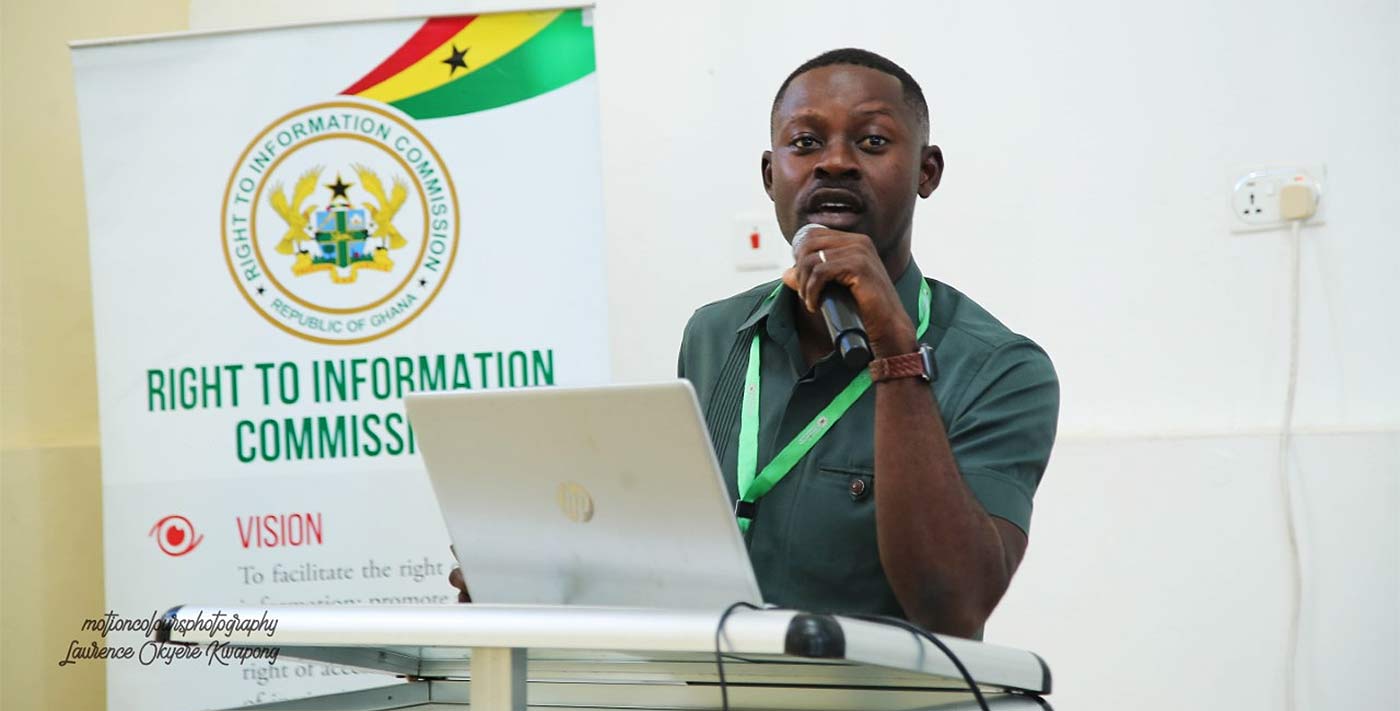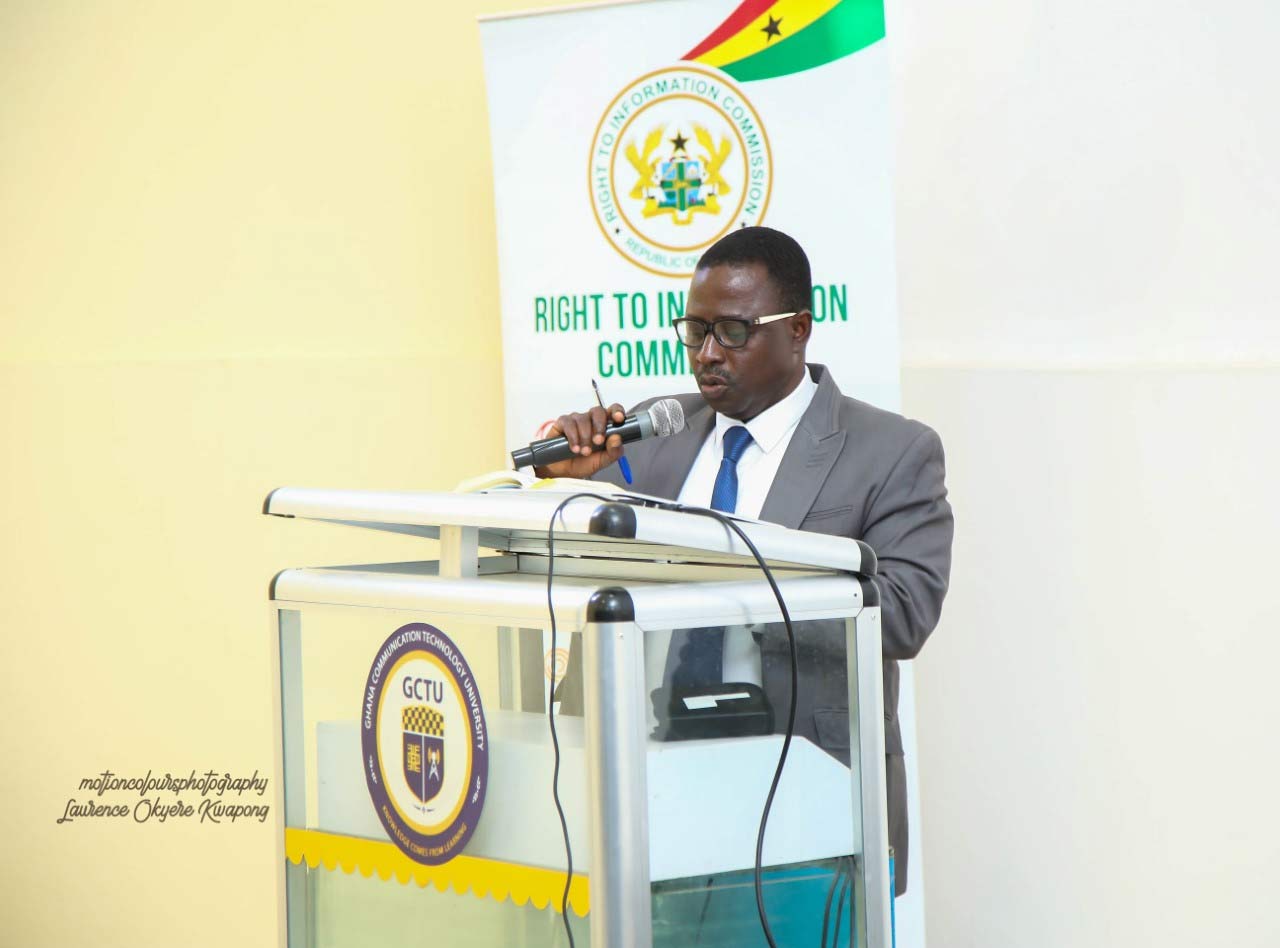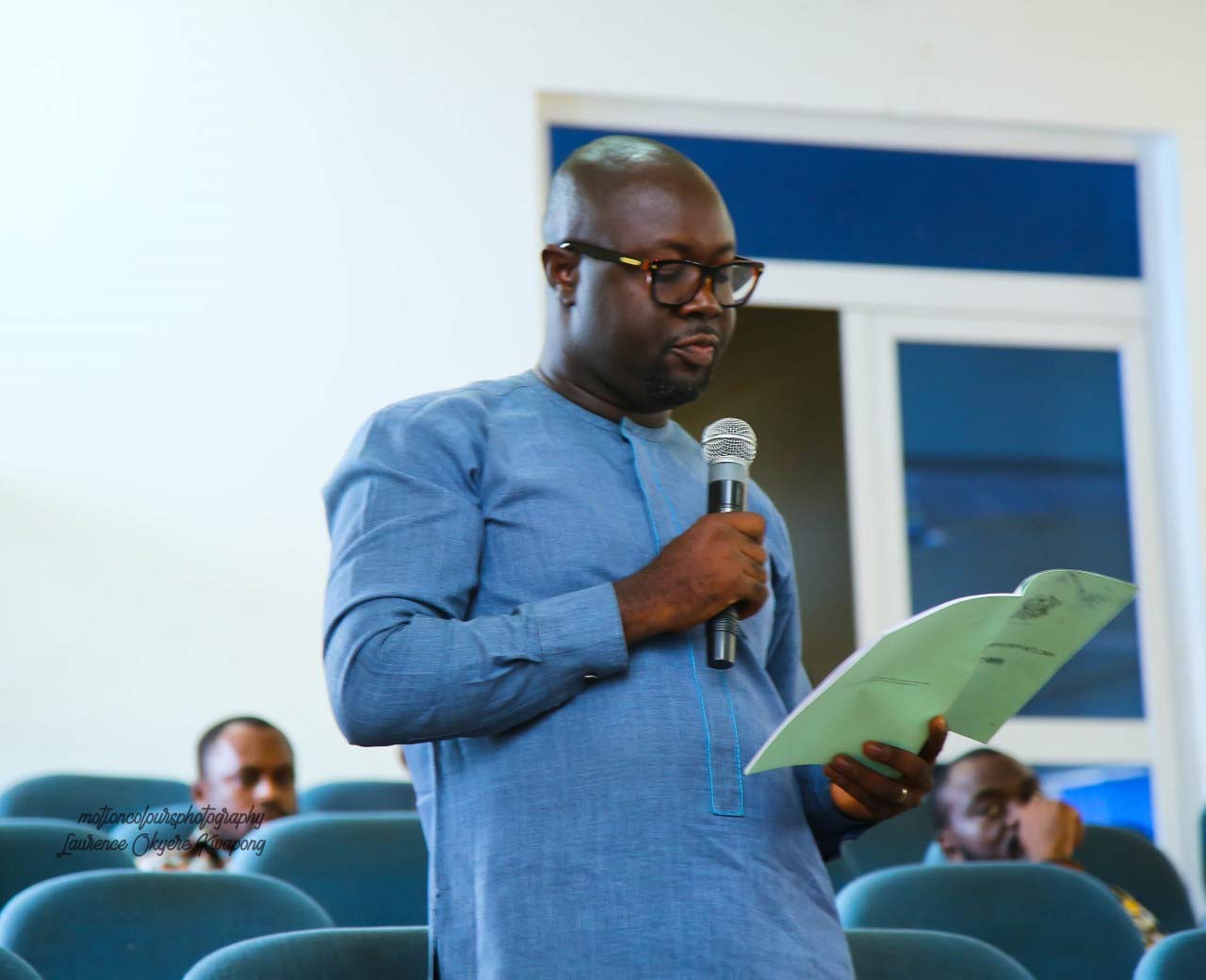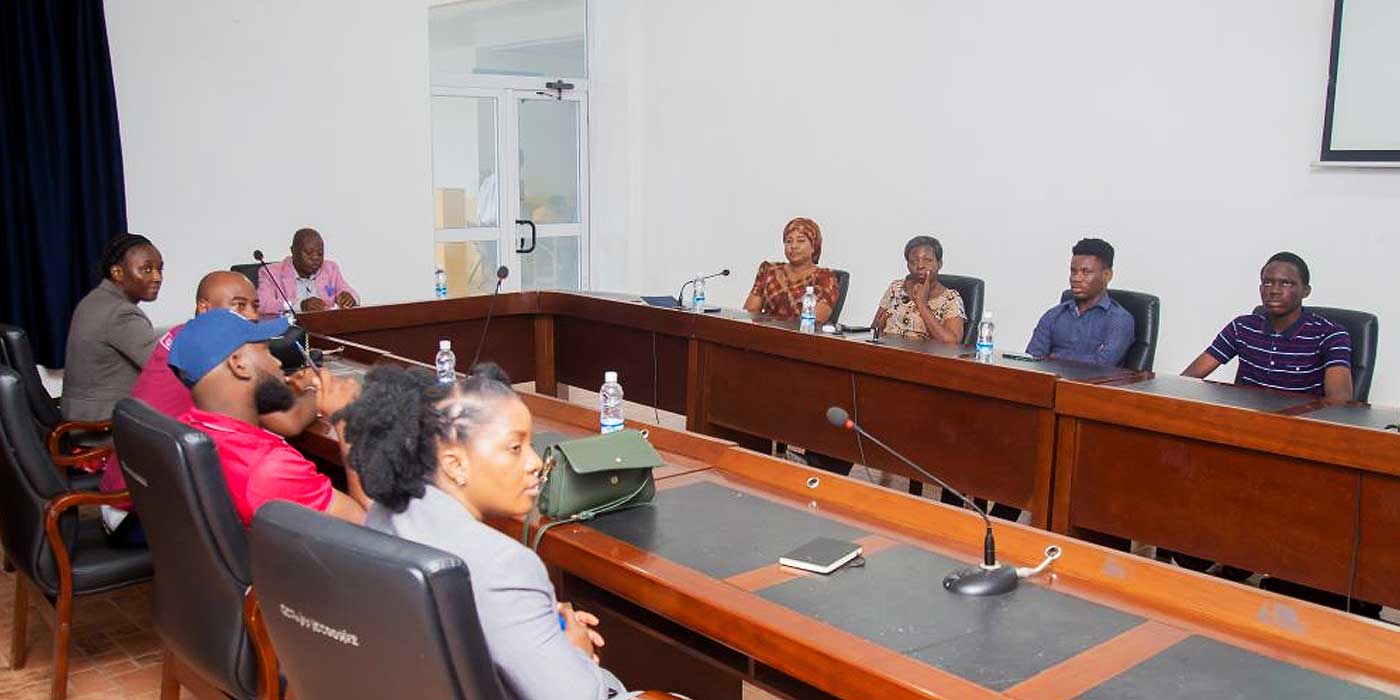
Under the auspices of the Human Resource and Organizational Development Directorate, the Right to Information Commission visited the University to facilitate a sensitization session regarding their mandate, operations and the principles and policies that govern the access to and use of information.

The programme, which was attended by both administrative and academic senior members, was chaired by the Registrar, Mr. Emmanuel Baidoo, who stood in for the Vice-Chancellor due to his official engagement elsewhere. Mr. Baidoo, in his opening remarks, alluded to the importance of information management in the institution and gave an insight into the specific areas which would be discussed during the programme. The Registrar concluded by pointing out that such sessions are very crucial in terms of developing staff and ensuring that the University aligns itself well within the public context in particular.

The focus of the discussion then shifted to the specific procedures and modalities which dictate the access to information, with particular emphasis on exemptions relating to information sharing. In this regard, attendants were apprised of the fact that while there is a general right to information, it must be taken into account that there are strict prohibitions relating to the dissemination of certain information. Such exemptions prohibit the sharing of information which is intended for the President and Vice-President of the nation, information relating to the Cabinet, as well as information concerning issues of national security, law enforcement, public safety and International relations. Contraventions of these exemptions may result in serious penalties, ranging from heavy fines to even imprisonment. In contrast however, it was highlighted that, while legal exemptions must be strictly enforced and adhered to, the Right to Information Act supersedes any internal confidentiality clause within an organization. Essentially, this means that once the Act stipulates that certain information is privy to public access, no organization is exempt from releasing said information, regardless of any internal restrictions which may prohibit its release.

Following a brief Q and A session, the programme was brought to a close, with the Registrar giving his concluding remarks. He reiterated the strict regulations included in the Right to Information Act, stating that a level of seriousness must be attached in their application, particularly bearing in mind that stringent penalties could be applied if they are not adhered to. He also assured the representatives from the Commission that GCTU would ensure its compliance with the conditions, regulations and processes governing the management of information within the institution. He emphatically stated that, “On behalf of Management, GCTU will position itself to align with the provisions of the Act, and we will ensure that we will comply fully with it.” He also affirmed his belief that this engagement would signal the beginning of a strong, mutually beneficial relationship between GCTU and the Right to Information Commission.
He finished by thanking the team on behalf of Management, expressing his appreciation for their time and the expert insights they provided during the session.










